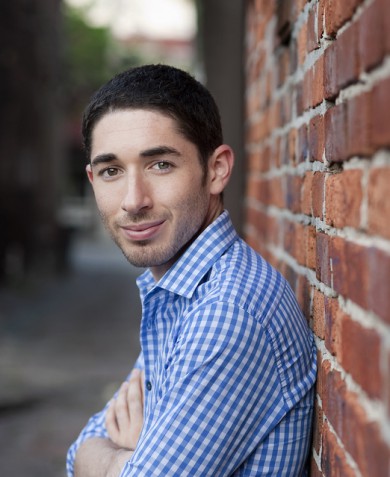Master Chorale reaches new heights to open 15th anniversary season

Brett Karlin conducted the opening concert of the Master Chorale of South Florida’s 15th season Saturday night in Fort Lauderdale.
The 15th anniversary season of the Master Chorale of South Florida opened with a performance of Maurice Duruflé’s Requiem on Saturday night at Coral Ridge Presbyterian Church in Fort Lauderdale. And there was cause for celebration.
Formed out of the remnants of the Florida Philharmonic Chorus after that orchestra’s disbanding, the chorus has weathered unstable seasons with a changing roster of conductors. Brett Karlin is now in his fifth season as artistic director and the change he has achieved in the 120-member group has been impressive. Karlin has transformed the choir into a cohesive ensemble that performs on a consistently high level. The group’s male voices, once the choir’s weak point, are now strong and secure. Moreover Karlin is an intelligent interpreter of diverse choral repertoire which this concert aptly illustrated.
The Master Chorale had sung most of the evening’s program Saturday morning at the American Choral Directors Conference in Orlando, so it was a long day for the chorus members. The finely responsive performance Saturday night under these circumstances attested to the high standards and esprit de corps Karlin has instilled.
The program opened with Invictus by Joshua Rist, a work often performed by collegiate choirs. A dark, throbbing opening turns to strains of hope and uplift in this brief vignette that demonstrated the chorus’s well blended corporate sound. Cellist Manuel Capote added depth of sonority to the keyboard underpinning.
Timothy Brumfield switched from piano in the Rist work to the sanctuary’s mighty pipe organ for his own Improvisation on a Gregorian Chant. Currently organist and choirmaster at St. Gregory’s Episcopal Church in Boca Raton, Brumfield has been a longtime member of the Paul Winter Consort and former organist at the Cathedral of St. John the Divine in New York. He is a master of the instrument. After a solo soprano voice sang the chant Ubi caritas unadorned from the back of the sanctuary, Brumfield launched into a fantasia that ranged from the softly introspective to the full flamboyance of a theater organist, before returning to a quiet restatement of the ancient melody.
Associate conductor Steven Hirner took the podium for “Wie lieblich sind deine Wohnungen” (How beautiful is Thy Dwelling place), the fourth movement from Brahms’ A German Requiem. With Karlin singing in the male contingent, Hirner maintained a flowing line and brought clarity to the contrapuntal writing.
The world premiere of Death, Be Not Proud by Chicago-based composer James Kallembach was the first of a series of annual commissions in memory of the late Roslyn Osborne, underwritten by her family. (Osborne was a singer in the Master Chorale and a member of its board of directors.) Brumfield’s grand, ceremonial organ introduction commenced Kallembach’s full-voiced setting of the iconic text by John Donne. The score is alternately tragic, moving and stirring in tone. Karlin’s forces sang Kallembach’s melodically rich work superbly.
Duruflé’s Requiem is one of the most unique and distinctive scores in the choral repertoire. The 1947 mass was the first of Duruflé’s limited output of published works. While often compared to Fauré’s Requiem, Duruflé’s setting is more austere. The entire work is based on the melody of a Gregorian chant which Duruflé melds with contemporary musical impulses. The work’s often unsettled harmonics suggests the influences of such twentieth-century French composers as Albert Roussel and the young Henri Dutilleux.
Karlin led a spacious performance that did full justice to the calm serenity of Duruflé’s beautiful writing. Singing with minimal vibrato, the female voices brought sweetness to the long- limbed melodies.
The score’s few big climactic outbursts resounded with terrific force in the sanctuary’s reverberant acoustics. Karlin emphasized the sudden moments of dissonance in the third section “Domine Jesu Christe,” ably seconded by Brumfield at the console. The “Sanctus” brings the score’s big tune, which was sung with felicitous blending. Duruflé’s carol-like setting of “Lux aererna” emerged with charm offset by hints of darkness in the unresolved tonality of the organ part.
Karlin brought out the drama in the restrained plea for mercy of the “Libera me,” one of the few times in the score that Brumfield’s organ sonority rose to full power. The concluding “In Paradisum” was exquisitely balanced and articulated.
Mezzo soprano Kate Maroney’s solo “Piu Jesu” was one of the highlights of the performance. With a pure and vibratoless timbre, Maroney sang with deep feeling and intense musicality, abetted by the dark tone of Capote’s cello.
There is only one remaining performance of this singular score. The entire program was a tribute to the splendid performing unit Karlin has built and a hopeful harbinger of great things to come for the Master Chorale.
The Master Chorale of South Florida repeats the program 4 p.m. Sunday at St. Gregory’s Episcopal Church in Boca Raton. masterchoraleofsouthflorida.org
The Master Chorale presents Handel’s Messiah 8 p.m. December 8 at the Broward Center in Fort Lauderdale. browardcenter.org 954-462-0222
Posted in Performances
Leave a Comment
Sun Nov 5, 2017
at 12:47 pm
No Comments






